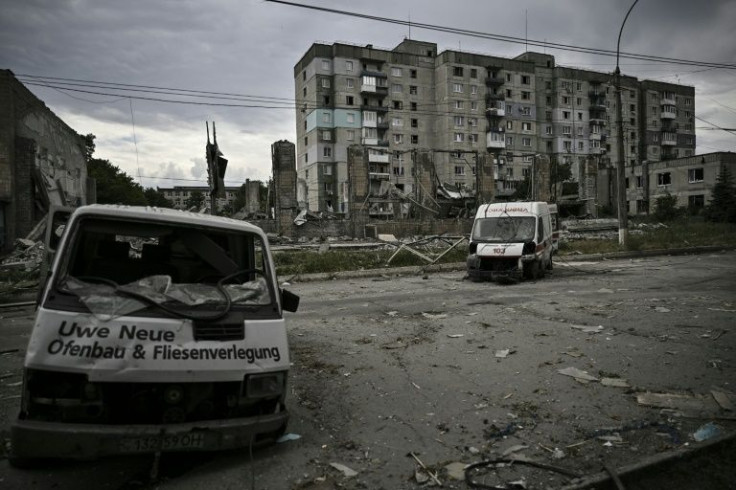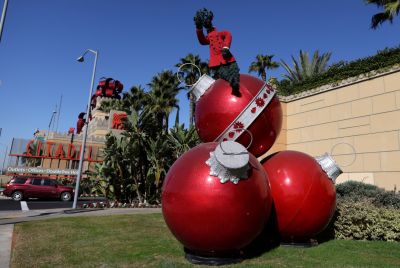'We Prepare For Worst', Says Governor Of Ukraine Frontline Region
The governor of the eastern Ukrainian region now seeing heavy fighting with Russia, Sergiy Gaiday, opened the pockets of his flack jacket Saturday to show gun cartridges and a tourniquet.
Appointed by President Volodymyr Zelensky, the 46-year-old heads the Lugansk region, including the city of Severodonetsk, where Russians are fighting street battles, and Lysychansk, where bangs of artillery are near-constant.
"It's a tough situation, in the city (of Lysychansk) and in the region as a whole," he told AFP in an interview, as Russians "are just shelling our troop positions 24 hours a day."
In Lysychansk, there are signs of preparations for street fighting: soldiers digging in, putting up barbed wire and police placing burnt-out vehicles sideways across roads to slow traffic.
"There's an expression: prepare for the worst and the best will come by itself, Gaiday said. "of course we need to prepare."
Gaiday has warned of the danger that Russian troops will encircle Lysychansk by cutting off supply roads.
"Theoretically it's possible. This is a war, anything can happen, he said.
"It could turn out that they cut off the region and we really do end up encircled. Maybe there will be fighting even in Lysychansk -- this is war."
From Lysychansk, Ukrainian artillery is firing at Severodonetsk, where smoke rises from the Azot factory and Russian troops fire back shells and rockets.
"Look how long Severodonetsk has held out: you can see they (the Russians) don't control the town fully... they can't go further in and they can't put their big guns or tanks there," the governor said.
He called for for supplies of "long-range weaponry to arrive as soon as possible".
"The fact that the West is helping us is good, but it's (too) late."
The governor could still theoretically visit his home town of Severodonetsk accompanied by military, he said, "but it's very highly risky".
In fact "there are no safe places in Lugansk region," he said, as explosions rang out in the background.
His flak jacket was stuffed with cartridge cases and he said he has a semi-automatic rifle in his car "and if I need to, I will fight".
Gaiday was born in Severodonetsk and appointed by Zelensky after his election in 2019.
Of his current role as a wartime administrator, Gaiday said: "It's hard, but I don't let my emotions out."
"It's painful for me to see how my home city is being destroyed," he said, as well seeing those he knew die.

"It's all painful, I'm a human being but I bury this deep inside me," he said, adding that his task is to "help people as much as possible".
Conditions are grim for civilians left in Lysychansk, who have no mobile phone connection, running water or power. They cook on campfires and shelter in cellars.
"About 10 percent" have stayed in the city, Gaiday said.
"We try to talk to people and persuade them to leave. Some point-blank refuse."
There is a "small percentage" who are waiting for Moscow to build a "Russian world" in the region, he said.
Gaiday has a prominent presence on social media including Telegram and Facebook, giving regular updates on the war.
"You need to talk," he said, saying this could counteract the powerful influence of Russia's state propaganda machine.
He said he also wanted people in the conflict zone to "understand that I haven't abandoned them, that I'm on the spot and with them."
Referring to a potential war crimes tribunal, he also suggested his posts "could even be a small element when we try (Russian President Vladimir) Putin at the Hague".
am/har
© Copyright AFP 2024. All rights reserved.





















